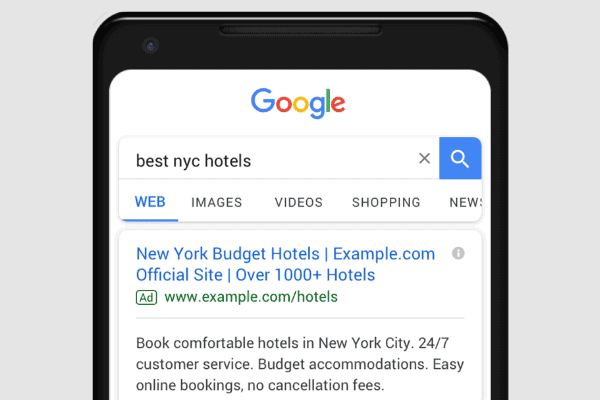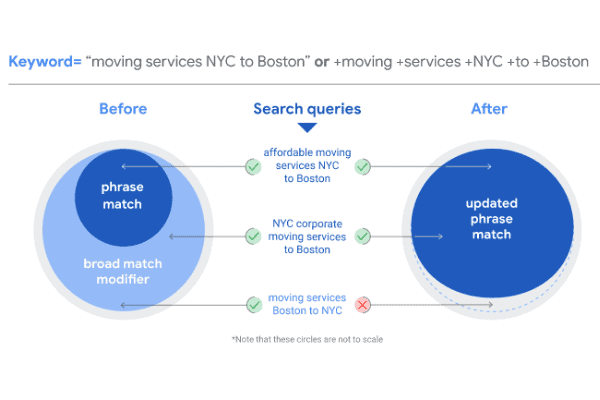Is your business optimizing for voice search?
The capabilities of voice assistants have grown more and more accurate and sophisticated and many smartphone owners often use smartphones for a variety of voice searches, especially local search. It’s so much easier to ask “Hey Siri, where can I get spaghetti?” to find the closest Italian restaurant than it is to open a laptop or even unlock a home screen.

And the dawn of smart speakers like Amazon Echo means a whole new era for voice search. According to OC&C strategy consultants, 55 percent of homes are set to own a smart speaker by 2022. And ComScore estimates that this year half of all searches will be conducted via voice search. But the problem with voice search is that results are incredibly limited. Mobile devices offer a scant few results and many smart speakers often offer just one.
Do you see why now you should be optimizing for voice search?
So what are most search marketers doing to prepare for the voice search revolution? Not much. A study by Uberall recently found that just 4 percent of businesses had enough information about their businesses online to qualify as fully ready for voice search. Those study results are actually great news for businesses with foresight, since, right now, voice search optimization is mostly about getting the right information on the right platforms.
Here are a few tips to prepare for voice search:
Claim your Google My Business listing
Products like Google Voice Search, Amazon Echo, Cortana, and Siri give searchers an instant answer to an infinite number of queries, which is excellent for the quick transmission of simple information, such as “Hey Siri, where is the closest hardware store?” However, the problem for businesses, especially small businesses not optimizing for voice search, there are very few winners. A Siri voice search only turns up a few location-based search results, and Amazon’s Alexa generally only offers one.
So in addition to having a website, social media presence, and reviews on relevant sites like Yelp, all businesses, but especially small businesses without a ton of backlinks, should make sure they claim and completely fill out their Google My Business pages. Getting started is simple and free. To get started, click “Manage Now” on the Google My Business homepage to search for and claim your business online. Once you’ve gotten through the verification process, make sure your page is filled out in its entirety, complete with high-quality images and keyword-heavy descriptions.
Make sure your business looks great on mobile
Optimizing for mobile is a crucial aspect of all SEM, but when it comes to optimizing for voice search, mobile is pretty much the only game in town. While smart speakers like the Echo are definitely a booming market, the majority of voice searches are still performed on mobile. And though voice searches on mobile typically begin with the spoken word, users are often glancing at their screens to see the actual results.
So if your customers are searching “Best Chinese food near me,” chances are, no matter which restaurant Siri suggests, searchers are most likely going to tap on a few options. That’s where good descriptions and alluring images come into play. There’s a very small opportunity to win out in the voice search wars on mobile, and presentation absolutely matters.
Think about what customers might be saying
Voice search has changed the way we seek information online. Whereas our typed searches tend to be a bit vague and open to the possibility of falling down internet “rabbit holes” in search of answers to a query, voice searchers generally don’t speak unless they’ve got something to ask. So instead of typing “hardware stores Chicago,” voice searches are more likely to ask a much more specific question, like “Hey Alexa, which coffee shops are still open?”
A recent study by Chatmeter found that 31% of consumers conducting a local voice search ask for store hours, while 13% ask for a specific product. In order to reach customers opting into voice search, it is important to understand the fact that searchers most likely aren’t going to ask for your business by name, but by product, location, and hours. Voice search optimization means making sure those answers are readily available and easy to find.
Focus on answering questions when optimizing for voice search
If voice search optimization is a goal for your business, answering questions is key. Make sure your website has a frequently asked questions page, and use that space to anticipate and answer the queries your customers are most likely to speak out loud. But don’t just stop at an FAQ page. Make sure your Google My Business descriptions use the limited words available in order to anticipate why, specifically, customers might be seeing out your business. If you own a bakery, don’t just assume the word “bakery” will necessarily draw in voice traffic. If you specialize in macaroons, iced chocolate chip cookie sandwiches, and fresh-made croissants, that’s vital information for boosting you to the top result when nearby customers are craving sweets.
Focusing on answering questions, making sure relevant search information is readily and abundantly available (especially on mobile) and scoping out where your business currently ranks in voice search results for many different smart speakers and voice assistants are all great ways to get your business in the voice search game. And with so many competitors likely ignoring their voice search rankings, there’s no time like the present!






